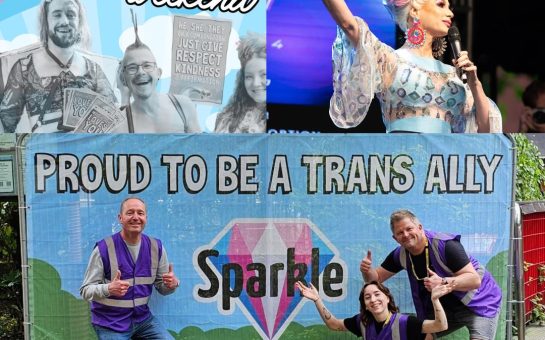Manchester City Council leader Sir Richard Leese says plans the city’s first new park in a century are a sign that a bright future awaits post-Covid 19.
The 6.5-acre Mayfield Park will run between Piccadilly station and Mancunian Way, along the River Medlock and is part of a larger £1.4 billion development project.
Speaking exclusively to Mancunian Matters, Sir Richard Leese, leader of Manchester City Council said: “The proposals around Mayfield Park really do deliver a very strong message that we are going to recover from Covid-19 and the city has a bright future.”
Mayfield Park is just one of 300 schemes which have won investment from the government’s £900m Getting Building fund, which is supporting “shovel ready” projects which aim to drive economic recovery from the pandemic.
Sir Richard confirmed that the project had not sprung up overnight and that it had been developed over the past four years, but argues the government funding will accelerate the delivery of those plans.
“Part of the condition of the allocation is that the work can be completed by March 2022, so this has got to be delivered pretty quickly.”
The park will include a network of walking, running and cycling routes; adventure play areas; biodiverse ecological areas beside the river while sheltered structures and areas will ensure it can be used in all weathers.
Mayfield Park will mark the first phase of commercial development in the area and will be part of plans to create 1,500 homes and 155,000 square metres of office space, as well as hotel, retail and leisure space in the new Mayfield district.
While asked if any of the homes would be affordable to those on housing benefit, he confirmed they probably would not but stated that most of this housing will be “worker housing.”
Sir Richard estimated that the project will create approximately 3,500 jobs, with immediate jobs being focused in construction and in the supply chain supporting construction.
This is something he argues should fuel optimism about the post-pandemic local economy: “There’s a lot of history that says that construction jobs are crucial to how you start the journey out of poor economic conditions.”
It will be delivered by the private-public consortium, the Mayfield Partnership, made up of the developer LCR; Manchester City Council; Transport for Greater Manchester and regeneration and property development specialist U+I.
Some of the reactions on social media were cynical, with many users posting photos of Piccadilly Gardens looking strikingly neat and idyllic in the ‘70s to suggest that deterioration of city-centre green spaces was inevitable.
But Sir Richard noted: “The pictures that often show Piccadilly Gardens in the 1970s don’t show that there was traffic on all four sides of that space, they don’t show that the park area was about half the size of what we’ve currently got in terms of space, they don’t show the public toilets in the park that were in that space as well, so those photographs are rather misleading.
“Piccadilly Gardens is immediately adjacent to an enormous transport interchange that has millions of people going through it every year.
“Clearly where Mayfield Park is located, we want lots of people to use it but it won’t have that interaction with a major transport interchange.”
And does he believe that the park offers any compensation for the failings of the national government where Manchester is concerned in terms of COVID-19?
Sir Richard said: “Not really. But I think probably something that we and government would agree on is that we do need projects that restore [public] confidence and do it quickly — I think what we have here is a scheme that will help us do that.”
Image courtesy of U+I with thanks.


